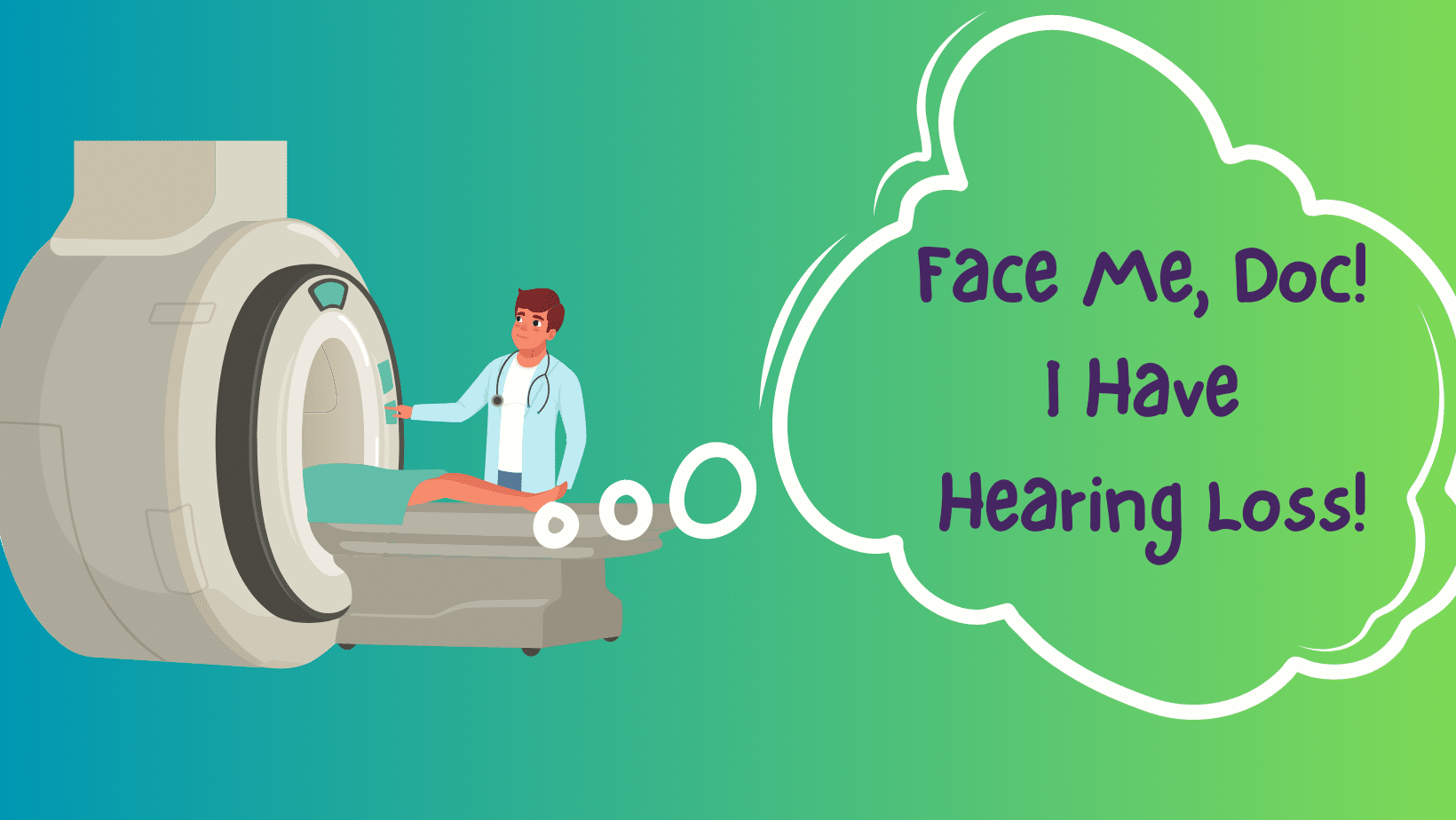In last week’s article, I relived the agonies of waiting for my name to be called in a busy clinic. Here’s the next part of the all-too-common medical appointment story.
Having escaped from the waiting room zoo, I was waiting to see my new ENT specialist in, hallelujah, a real room, with a door. My previous ENT believed in the open office concept, a nightmare for patients with hearing loss.
The doctor strode into the room, white coat and a medical intern flapping behind him. Doc plopped onto the stool in front of me and looked me in the eye.
(Good communication skills, hooray! But as an ear, nose and throat specialist; he should know how to talk with his patients, right? I’d been training my family doctor on basic patient communication and after eight years, she no longer talked to my feet or other body parts during a check-up.)
“So, what can I do for you today, uh, (looking at my papers), Mrs. Hannan?”
“Well, I haven’t seen a specialist in a million years, and my audiologist thought maybe it was time I should. A lot of my friends have acoustic neuromas or other interesting stuff, and when I was a child, a doctor did radiation on my ear, but I’ve never had an MRI, and I’m thinking maybe I should?” (My babbling trailed off.)
“Mumble, mumble,” he said into my chart.
Doc didn’t respond to my little attention-getting wave, so I leaned sideways, downwards, and forward to make eye contact. “Sorry, doctor, I’m hard of hearing, could you face me please?”
After a blank look, he laughed-snorted, “Yes you are, aren’t you? Sorry about that.” We all laughed, but I’m not sure if he was sorry for my hearing loss or because he didn’t face me.
“Ok, fine, an MRI it is. I’m-sure-there’s-nothing-wrong-you’re coping-well-so-come-and-see-me-afterwards-probably-in-a-few-months”. Doc stood, nodded and swept out of the office, the intern catching his wake. 45 minutes of waiting, 2 ½ minutes of consultation. I’m not complaining; I know there’s a shortage of doctors, with hundreds and thousands of people who need help. I’m lucky to have access to good medical care. It’s just that during this short meeting, I had to spend more energy on my communication challenges than on discussing my medical issues.
A few weeks later, I was at the hospital for my MRI wearing one of those airy hospital gowns. The technician handed me earplugs to wear during the noisy procedure.
“I have hearing loss,” I told her. “What do I need to know before this starts?”
“We’ll tell you what to do during the test; you’ll hear me telling you when to breathe in, hold, and let it out.”
“No, I won’t. My hearing aids will be out, and I will be functionally deaf.”
A blank look. “I’ll speak loudly, you’ll hear me.”
“No. I. Won’t. What do you do for other people who can’t hear?”, I asked.
A blanker look.
“Hmmm, well, we’ll do our best, I’m sure it will be fine.”
“Hmmm, well, unless you have captioning in there, I will not understand what you are saying.”
Grumpy, I put my hearing aids and other valuables into a locker and sat down in a tiny waiting room, feeling vulnerable, deaf and half-naked.
The technician reappeared with a huge length of clear tubing coiled around her arm and motioned to me. I thought, not on your life, woman! I’m here for an MRI, not an enema!
At the look on my face, she cracked a smile and mouthed, no it’s ok, come with me.
the large MRI room, she said, “None of us have ever done an MRI on a deaf person. I’m embarrassed that we didn’t have something in place. But let’s try this. We’ll tie the tubing around your wrist; when we yank it, you breathe in and hold it until the next yank, when you let it out.”
“What if you forget to yank the second time?” She laughed.
They slid me in, feet first, and throughout the procedure I could feel the MRI’s loudness. I dutifully responded to the wrist-jerking and thankfully, the tubing doesn’t break, my second worst fear after having the power go out while I’m entombed in MRI hell.
The happy ending? Nothing showed up on the MRI. Since that time, MRI procedures have improved accessibility for patients with hearing loss. But I’m not sure I can say the same, in general, for physicians’ face-to-face communication.








so true. Had an EMT who spoke to me while he was seated and faced a wall. Never saw him again.
In my case, when I had a cat scan, they turned the ceiling light on and off to indicate when to breathe in and out. 😊